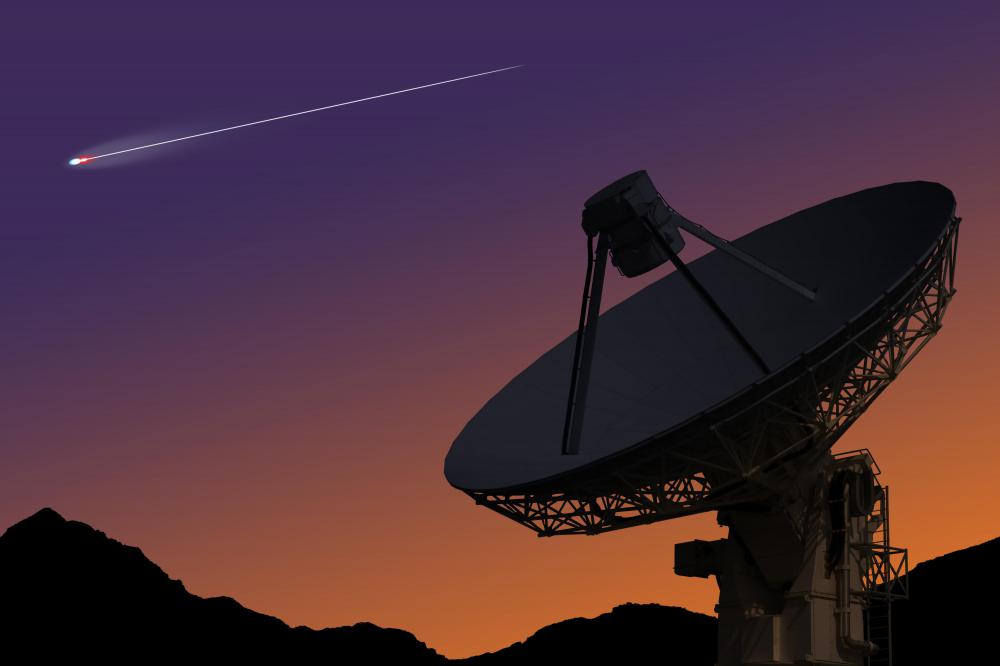At WiseGEEK, we're committed to delivering accurate, trustworthy information. Our expert-authored content is rigorously fact-checked and sourced from credible authorities. Discover how we uphold the highest standards in providing you with reliable knowledge.
What is a Cosmologist?
A cosmologist is someone who studies the physical universe. Cosmologists are interested in how the universe formed, what is happening to the universe, and what the place of humans within the overall framework of the universe might be. People have long been interested in the nature of the universe, and cosmology has been a part of human life for thousands of years, but it only acquired a scientific bent more recently.
Cosmologists are knowledgeable in several scientific fields. They usually have an extensive familiarity with physics, because physics knowledge is critical for grasping many concepts in cosmology. They also know astronomy, the science of identifying, naming, and describing the various objects in the universe. A cosmologist often works as an experimental scientist, testing hypotheses about the universe and making observations of the parts of the universe which are visible from Earth to find more avenues of exploration.

A wide variety of theories about the nature of the universe have been proposed, from the idea that it was created by God to the suggestion that it was a random spark of happenstance in which a sequence of events occurred in a particular way to trigger the creation of the universe. What most cosmologists know about the universe is that humans do not know very much about the universe, and that there is a lot of room for additional study. A cosmologist can choose from a wide variety of specialties within the field of cosmology.

Cosmologists are interested in the physical objects in the universe, as well as their relationship to each other. They are also intrigued by the movement of celestial bodies, along with the formation and destruction of various objects in the universe. To aid them in their work, cosmologists use a variety of tools including high powered telescopes, specialized radio telescopes which literally listen to the universe, and Earth-bound tools like particle accelerators and scientific laboratories for the purpose of testing theories about the universe.

Someone interested in a career in cosmology should plan on starting early, preferably in high school with a strong set of math and science courses. In college, a future cosmologist may study in a cosmology program, or he or she may choose to come at the field from the perspective of astronomy, physics, or astrophysics. Most cosmologists have performed advanced graduate work in the field, and many work as teachers and researchers at universities around the world. Others work for private scientific institutions, or government agencies with an interest in the field, such as the National Aeronautics and Space Administration in the United States.
AS FEATURED ON:
AS FEATURED ON:














Discussion Comments
Where do you go to study cosmology?
@turquoise-- Cosmology is a branch of astronomy. So cosmologists are astronomers (not "astronomists"), just as astrophysicists are. Technically, cosmologists can be as observational about the universe as astronomists are. So there is no rule that cosmologists have to be interested in purely theory. It is true that cosmologists are more interested in evolution than other astronomers however.
Cosmologists study astronomy and specialize in cosmology in graduate school. Cosmologists work in the same type of institutions as other astronomers.
@turquoise-- That's a good question, I'm studying cosmology, and I'll try and answer as best as I can.
It's true that cosmology, astronomy and physics overlaps a lot in curriculum. Bot cosmology and astronomy students need to be strong in physics and mathematics. Not to mention that most cosmologists receive degrees in astronomy or physics.
In terms of what they study and do though, there is a clear difference between them. Cosmologists, by definition, are more interested in theory. They study the universe but not just what's physically in the universe, but rather how and why the universe came to be in the first place. Cosmology is a more open-ended program suitable for people who love to theorize about the past and future of the universe and of course the earth.
Astronomy, on the other hand, is very much focused on the facts. Celestial forms, what they're made of, what they do, how they form and die is the main concern. There isn't much room for theorizing in astronomy.
I'm not too versed about these fields but cosmology sounds awfully like astronomy to me. I don't really see what the difference is between a cosmologist and an astronomist. Astronomists are also scientists who study space and planets and develop theories about it.
Since cosmologists receive training in astronomy, their education background sounds the same. What do cosmologists study differently?
And where do cosmologists work? Do cosmologists also work in research institutions like NASA as astronomists often do?
Post your comments